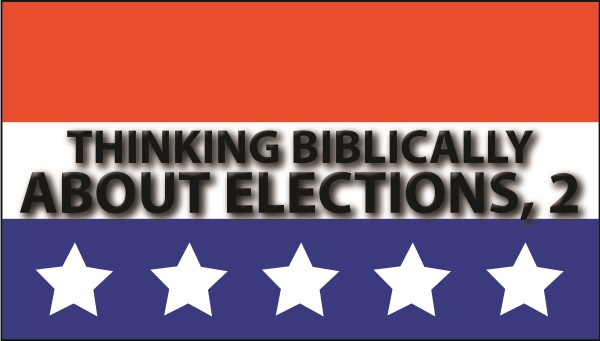By Tyson Thorne

VOTING ISSUES
What is our responsibility in voting social policy?
Watch over your liberties and privileges - civil and religious - with a careful eye.
– Matthias Burnett Tallmadge
In 1806 Matthias Burnett Tallmadge left his private attorney practice to join the US District Court of New York, an appointment position made by Thomas Jefferson. A patriot who worked before and behind the bench, he was a well-studied man whose intentions for this country aligned with those of the founding fathers. His hope for working in the legal system was to serve America and live according to the principles he preached, namely carefully and peaceably protecting the Constitution. His advice, quoted above, is still worth receiving.
Mostly when one thinks of elections thoughts turn to the people we elect, but there is much that ought to be said of the laws we pass. Usually such discussions run in one of two directions. The first, that our nation should not be held hostage to the whims of a runaway judicial system. The most recent accusation of such a crime is the Supreme Court’s decision to make “gay marriage” legal in all fifty states, despite the will of the people. It is argued on one side that the Court had no right to make the decision as it creates new law, something only Congress and the Senate are permitted to do under the Constitution. Others argue it is a civil case and needed the Federal mandate to support every person’s right to pursue life, liberty and happiness.
The second discussion usually revolves around single-issue voters. The most well-known example are citizens who only cast their vote for candidates who are pro-life. Such voters are accused of disregarding a candidate’s personal integrity or performance in office so long as the elected continue to speak out against abortion. Samuel Adams spoke to such a practice when he said, “Let each citizen remember at the moment he is offering his vote that he is not making a present or a compliment to please an individual - or at least that he ought not so to do; but that he is executing one of the most solemn trusts in human society for which he is accountable to God and his country.” In other words, voting for someone to reward their thinking on a single issue runs contrary to good judgment.
The fact is, issues that appear on the ballot are frequently moral in nature. The two examples cited above, gay marriage and abortion, were taken out of the hands of the voting public and decided by the Supreme Court. That said, there are many other issues that are local and on which the public must decide. Take the legalization of Marijuana for example. Some argue that smoking this substance is immoral and should be illegal. Others argue that we cannot legislate morality and that people should have the right to do what they want. In truth, either way morality is being legislated – either for a moral lifestyle or against one. What it boils down to is, what kind of community do we want to live in?
Not all issues are as easy to decide. A remote suburb may want a bus line to extend to their community, but doing so would require the county to upgrade the roads leading into the neighborhood. Who should pay for those construction costs? Should the county use tax dollars for the benefit of only those people who knew they were moving into a remote community in the first place? Should taxes be raised in the community to pay for the project, even though some may have bought homes specifically because the neighborhood was remote? Spending money is almost always a moral dilemma, and one that should be though through carefully. In all things we must think Biblically.
James Garfield, the twentieth President of the United States once wrote, “If the next centennial does not find us a great nation . . . it will be because those who represent the enterprise, the culture, and the morality of the nation do not aid in controlling the political forces.”
This election day, assure that your vote aids in controlling those political forces and reflect a Biblical stand.
|
|
